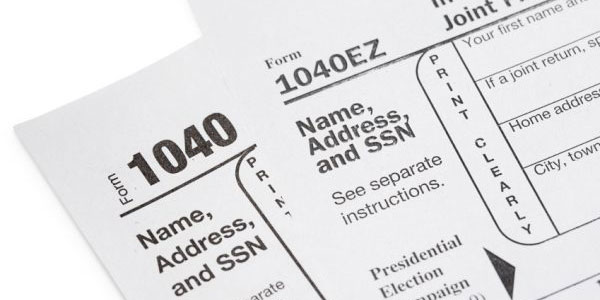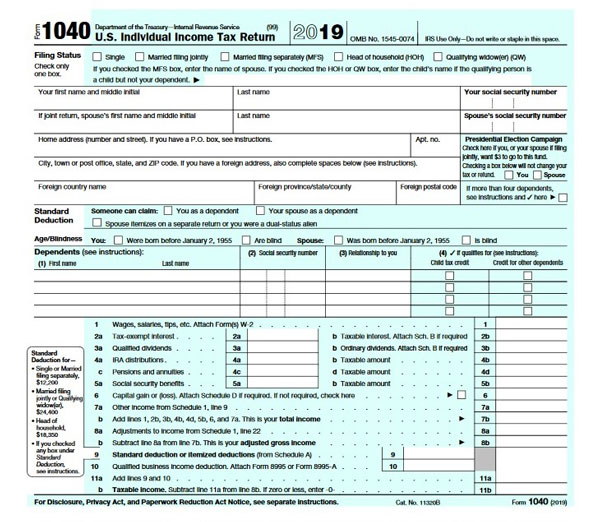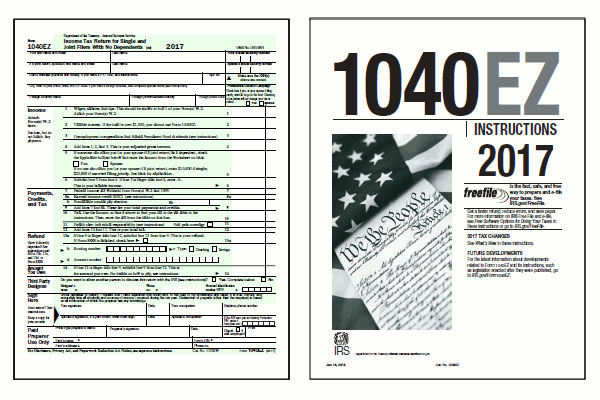
Individual federal tax returns may now be filed using IRS Form 1040 or even the new 1040-SR for the over-60 set. Alternative tax forms 1040EZ and 1040A, which were formerly available, were no longer offered for use beginning with the 2018 tax year. Forms 1040-A and 1040-EZ may still be used to submit taxes for years prior to 2018. Because of this, below are some comparisons between them. There was only one function for each form, and that was to record your earnings and assess if you owed more taxes or, better still, received a tax refund.
The simplest form to complete is the 1040-EZ. Forms 1040-A and 1040-EZ are both lengthier and more complicated, while Form 1040 is the most in-depth and difficult to complete. The 1040-EZ and 1040-A forms may only be used by those who fulfill specified conditions. Here's a simple guide to assist you in determining which form is appropriate for your particular circumstance.
Form 1040

No matter whether you qualify for the 1040EZ or 1040A, everyone may utilize Form 1040. According to the Internal Revenue Service (IRS), you are required to utilize Form 1040 if any of the following apply to you: you are self-employed; you itemize your deductions; you owe household employment tax, or you have taxable income of at least one hundred thousand dollars. Try the IRS online tool on the IRS website to help you decide on the easiest federal income tax form to submit.
Form 1040A
Form 1040A is longer than Form 1040EZ but shorter than Form 1040. It lets you claim some adjustments not available on Form 1040EZ. For instance, filing as the head of the household using Form 1040A is preferable to filing as a single. When filing your tax return, don't forget to use Form 1040A, which allows you to include your dependents and claim certain tax credits and deductions.
Only those with taxable income of less than $100,000 may utilize Form 1040A. Other income criteria for Form 1040A vary from those on Form 1040EZ in that you may list a greater range of income. Your income may come from a variety of sources, including wages, salaries, tips, pensions, annuities, individual retirement accounts (IRAs), and capital gains distributions, for example. Form 1040A doesn't have the 1040EZ's $1,500 interest income cap. With Form 1040A, you can't itemize your deductions. Therefore you must accept the standard deduction instead. This implies that charity donations, mortgage interest, medical costs, and company expenses are all non-deductible.
Form 1040EZ

Form 1040EZ is the simplest federal tax form to complete, so that contains the most limitations. The IRS utilizes this checklist to see whether you're eligible to submit Form 1040EZ:
- If you're single or married and filing jointly, this is how you declare your income on your tax return.
- You have a taxable income of less than $100,000.
- Earned earnings and salary; tips; interest income; taxable scholarship as well as fellowship awards; unemployment compensation; or dividends from the Alaska Permanent Fund are all sources of taxable income for you.
- Any suggestions you received are included in Boxes 5 and 7 on your W-2.
- You were under the age of 65 and not blind at the end of the tax year.
- The earnings of domestic workers are not subject to household employment tax.
- After October 16, 2005, you were not a Chapter 11 bankruptcy debtor.
- Your premium tax credits also weren't paid on your behalf, nor were they paid on behalf of your partner, nor were they paid on an individual who you registered in coverage for who is not being claimed as a dependent by anybody else.
Form 1040EZ cannot be used unless you fulfill all of these requirements. Using Form 1040EZ to claim dependents or itemized deductions is not an option even if you complete the prerequisites listed above. Other tax credits and income adjustments, such as donations to an IRA, are likewise outside limits, except for the earned income tax credit. Forms 1040A and 1040 must be used to claim dependents, deductions, adjustments, and credits.
Conclusion
Generally speaking, the more tax incentives and credits that are offered, the longer the tax form is. Filing a 1040-EZ or even 1040-A instead of 1040 was quicker and required less paperwork, but you can lose out on tax deductions and credits that save you money. Both the EZ as Well as A versions of the 1040 tax form have been phased out as of 2018. A tax expert or the IRS's Interactive Tax Assistant may assist you in figuring out which form is most appropriate for your specific case if you're not sure which one to use.



